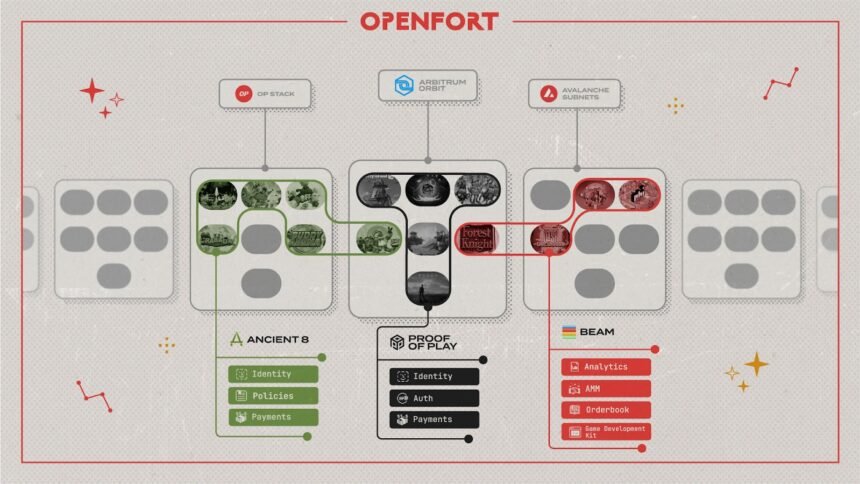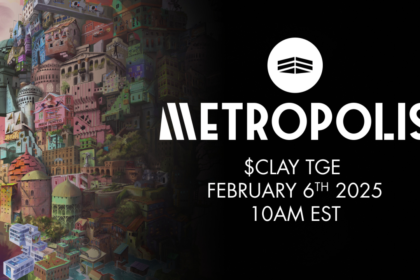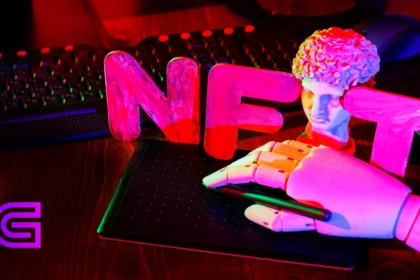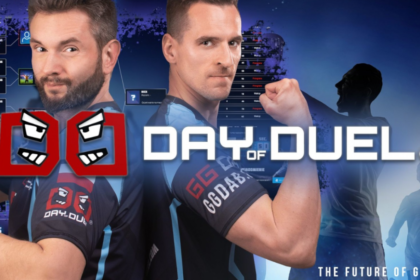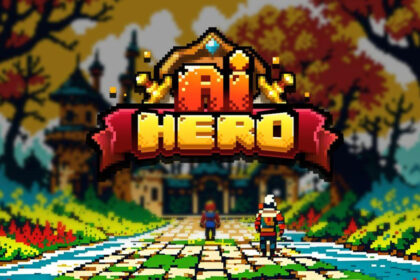July 11, 2024 — Openfort, a gaming solution provider, today announced the launch of its latest product, Ecosystems.
Seeing an increase in multi-game studios and token-unified game platforms, Ecosystems streamlines the management of multiple games within a single ecosystem/aggregator. This product contains key features (see below) that address the growing complexity developers face when handling numerous games that coordinate through a common currency or wallet, offering a more efficient and cohesive approach to game management.
Traditionally, platforms such as Steam and Epic Games aggregates games, oversee their distribution, and facilitate monetization. The Ecosystems feature of Openfort serves as an analogy for the onchain world, enabling projects to construct gaming ecosystems with ease. Developers can create a unified token, set policies for its use, and manage authentication across their ecosystem, creating a seamless gaming experience.
Key Features of Ecosystems:
- Ecosystem Policies:
- Shared Policies: Developers can set gas limits and interaction rules at the ecosystem level, ensuring consistent and efficient policy application across all games. This application works both to ecosystem coins as well as assets that might be shared across.
- Whitelabel Dashboard:
- Customizable Developer Dashboard: With the Whitelabel Dashboard, developers can host a branded dashboard on their own subdomain. This feature simplifies the onboarding process for partners and provides an ecosystem experience.
- Project-Specific Views: Games only see information relevant to their project, while ecosystem administrators have comprehensive visibility over all projects within the ecosystem.
Benefits for Developers and Ecosystem Managers:
- Simplified Onboarding: The ability to create their own authentication client (OAuth) or simply offer Single sign-on (SSO) to their ecosystem also helps maintain wallets across ecosystems.
- Enhanced Management: Ecosystem managers can maintain a clear overview of all games, assets, and policies, ensuring streamlined analytics and better resource allocation.
- Player Interaction: All players within the ecosystem need to grant permission for interactions between games, ensuring an authorized gaming experience.
Today’s surge in web3 projects involves the amalgamation of games with a single chain or alongside multiple chains. This process involves the management of multiple assets, tokens, policies and ecosystem mechanics, making standardization rather complex. There are multiple examples ranging from Beam to Treasure, Portal or XAI. Ecosystems make managing variables easier, making the developer experience more consistent across the stack.
Projects like Beam or GFAL, benefit from Ecosystems. Having the flexibility to create their own authentication solution is a huge plus for projects looking to customize their player experience. In addition, with Openfort Shield, games are abstracted away from the complexity of handling private keys with embedded gaming wallets.
“We understand the challenges that come with managing multiple games under one token,” said Joan Alavedra, co-founder at Openfort. “With the introduction of Ecosystems, we’re providing gaming aggregators with the tools they need to create, manage, and scale their vision more efficiently. This feature is a testament to our commitment to supporting the evolving needs of the web3 gaming community.”
For more information about the Ecosystems feature and how it can benefit your projects, visit openfort.xyz or contact founder@openfort.xyz.
About Openfort: Openfort is a developer toolkit helping game studios onboard players and monetize with simple APIs and gaming SDKs. Game studios and web3 ecosystems save time and money by easily integrating our battle tested wallet abstraction.
Contact: Joan Alavedra
Co-founder & CEO
https://openfort.xyz



